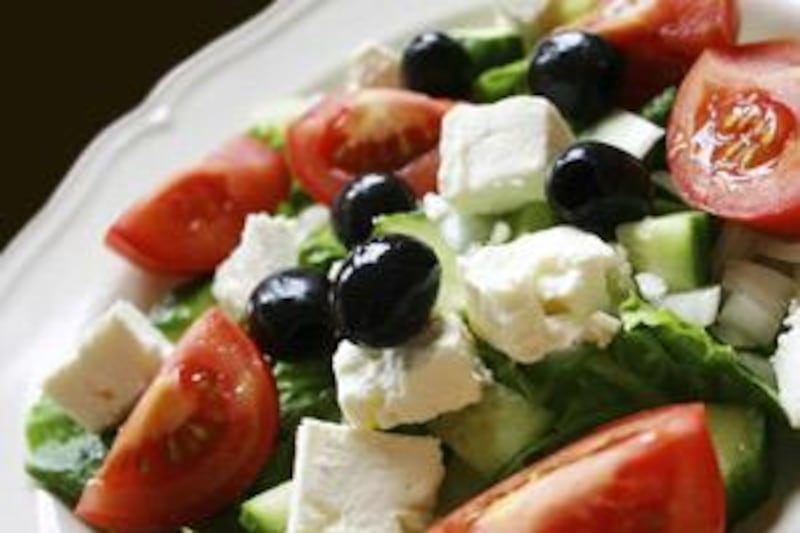While every region of the world has its own traditional cuisine, perhaps none is as well known, and studied as that of the Mediterranean. Rich in fruits, vegetables, legumes, nuts, seeds, olive oil and fish, it is a diet revered for being low in artery-clogging saturates and transfats, high in fibre and antioxidants and rich in heart-healthy unsaturated fat. Food habits from the Mediterranean first made headlines in the early 1990s when researchers noted its exceptional nutrient content and health benefits. Almost 20 years later, it is still making waves.
Study findings released earlier this month in the Annals of Internal Medicine found that a Mediterranean-style diet beat out a low-fat diet in terms of controlling diabetes, a disease that is estimated to affect one in five people in the UAE. Researchers randomly assigned either a low-fat diet or Mediterranean-style diet to 215 overweight people who were recently diagnosed with type-2 diabetes. After four years, they found that only 44 per cent of the people eating the Mediterranean food required drug treatment to control their diabetes, compared to 70 per cent in the low-fat group. What's more, the Mediterranean group achieved greater weight loss and a healthier body-mass index overall.
It seems the diet also plays a role in preventing the onset of the disease. Study findings released last year in the British Medical Journal examined the eating habits of over 13,000 Spanish university graduates and found that participants who ate a Mediterranean-style diet had a lower risk of developing diabetes. In fact, people who followed the diet the closest had a staggering 83 per cent reduced risk of developing the disease, compared to people who didn't follow the diet.
A Mediterranean-style diet has also been found to offer protection from cardiovascular disease and cancer. One of the largest studies to date on its health benefits was released in 2003 by Harvard researchers. After analysing the diets of over 22,000 people who live in Greece, it was found that those who closely followed a Mediterranean-style diet tended to live longer and were less likely to die from heart disease and cancer than those who do not.
In the UAE, where rates of obesity and diabetes are some of the highest in the world, it seems we can certainly take a cue from the Mediterranean. Incorporating some of the typical foods into your diet is easier than you may think - especially since most of the staples are common here. Contrary to most other healthy diets, the Mediterranean diet stands alone in that it doesn't limit fat, instead it promotes the intake of healthy fat. Olive oil is a cornerstone of the diet and is used almost exclusively for cooking. Olive oil is rich in monounsaturated fat, which lowers unhealthy LDL cholesterol and raises healthy HDL cholesterol.
Fish is one of the leanest sources of protein around. It rivals red meat in its protein content, but instead of being packed with artery-clogging saturated fat, it is rich in heart-healthy unsaturated fats. Oily fish, such as salmon, mackerel and herring are top of the class when it comes to omega-3 fatty acid content. Fruits and vegetables of all kinds are enjoyed in abundance in the Mediterranean. You can't go wrong when choosing fresh produce, as it is all low in fat, rich in nutrients and antioxidants and high in fibre. Enjoy a variety at every meal.
Despite being high in fat, nuts and seeds are another staple in the Mediterranean. Nuts are rich in monounsaturated fat - the same fat found in olive oil, but tend to be high in calories. Nuts and seeds offer the most health benefits when enjoyed in moderation. This means no more than a handful a day. While many studies attribute the benefits of the Mediterranean diet to the foods that it contains, it is worth remembering that there are other factors at play. Not only do portions tend to be smaller in this region of the world, physical activity, such as walking, cycling and climbing stairs also tend to be incorporated into daily activities. Enjoying healthy food choices as part of an overall healthy lifestyle is the key to gaining the most benefit.






